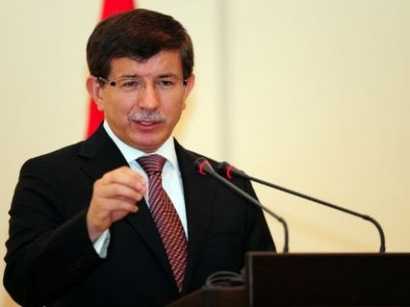Intelligence sources indicate that the biggest arms suppliers of the terrorist Kurdistan Workers’ Party (PKK) are allies of Turkey that are also members of NATO. Recently drafted General Staff reports say that many mines planted by the PKK were obtained from Italy and Spain.
Turkey is ready to start a new round of diplomatic initiatives to stop countries that supply the PKK with arms. Turkey has undertaken similar initiatives in previous years.
Over the past few months, the PKK has relied on arms from Mediterranean countries, intelligence reports indicate. The roadside bomb that exploded in Halkalı on Tuesday was of Portuguese origin, intelligence sources said, adding this country to the list of countries that supply arms to the terrorist organization. That attack was carried out by the PKK’s urban offshoot, the Kurdistan Freedom Falcons (TAK).
The most crucial question is how the PKK is able to bring these arms supplies it obtains from Mediterranean countries to northern Iraq. US journalist Seymour Hersh claimed in 2007 that this was done via Israel.
The General Staff has seized PKK arms and ammunition originating from 31 different countries. However, NATO-member countries have been the biggest suppliers. Most of the arms and ammunition seized are of Russian, Italian, Spanish, German and Chinese origin.
In 2007 Turkey questioned the countries where the arms used by the PKK — particularly the heavy artillery the terrorist group uses — are mostly manufactured on how the PKK could have obtained these weapons. These diplomatic attempts must have produced some sort of a result, as all PKK weaponry seized in the past three years have had their serial numbers erased. The military has noticed that the PKK now generally erases serial numbers, especially on explosives. However, most of the time the origins of the ammunition can still be traced. Turkey is concentrating on finding the sources of not the lighter arms but of heavy artillery such as heavy machine guns, rocket launchers, mines and hand grenades.
According to data from the General Staff, the Kalashnikovs used by PKK terrorists are from Russia and China. The rocket launchers, mines, hand grenades and heavy machine guns so far seized from the organization appear to have been manufactured in Italy, Germany, England, Spain, Portugal, Czech Republic and Hungary.
The organization uses a third country to bring the weapons to northern Iraq and then into Turkey. What disturbs Turkey most is that the mines that have killed more than 100 Turks recently were all obtained from Italy.
Another issue is that the PKK, which had been rather sloppy in using remote-controlled mines until 2008, has become more of an expert at such attacks. Terrorism experts say the PKK has been given special training, with many suspecting Mossad agents. In 2009, Interior Minister Beşir Atalay claimed that some Mossad agents had gone to northern Iraq and given training on remote-controlled explosives.
According to documents from the General Staff, 72 percent of the Kalashnikovs used by the PKK are from Russia, 15 percent from China and the rest from Hungary and Bulgaria.
In 2007, it was reported that more than 170,000 weapons donated by the US to the Iraqi army had ended up in the PKK’s hands. The US Defense Department started an investigation after Turkey’s discovery of this fact.
Turkey is making a point to not publicly announce how it suspects these weapons are being brought into northern Iraq. Pulitzer-winning journalist Hersh, in an interview with the Takvim daily earlier this month, said Israel helped the PKK base in the Kandil Mountains bring in arms and supplies on helicopters.
He said that Israel gives extensive support to the PKK and the related Iranian organization Party for a Free Life in Kurdistan (PJAK), especially in terms of arms supplies. He also said that Mossad operatives are active in the area, noting that Jewish Kurds who left northern Iraq 50 years ago returned to the region after the 2003 US occupation. He argued that most of these people are cooperating with the PKK and the purpose of these developments will become clear to all in the near future.
Although this interview has attracted the attention of Turkish security units, there is a visible effort to avoid making any official statements at this point. Turkey recently made a decision to start diplomatically lobbying countries that supply arms to the PKK. If these countries fail to cut the support they provide for the PKK, then they will be warned openly in the international arena.
|
|
| ERCAN YAVUZ ANKARA
www.todayszaman.com, Jun 26, 2010
|






